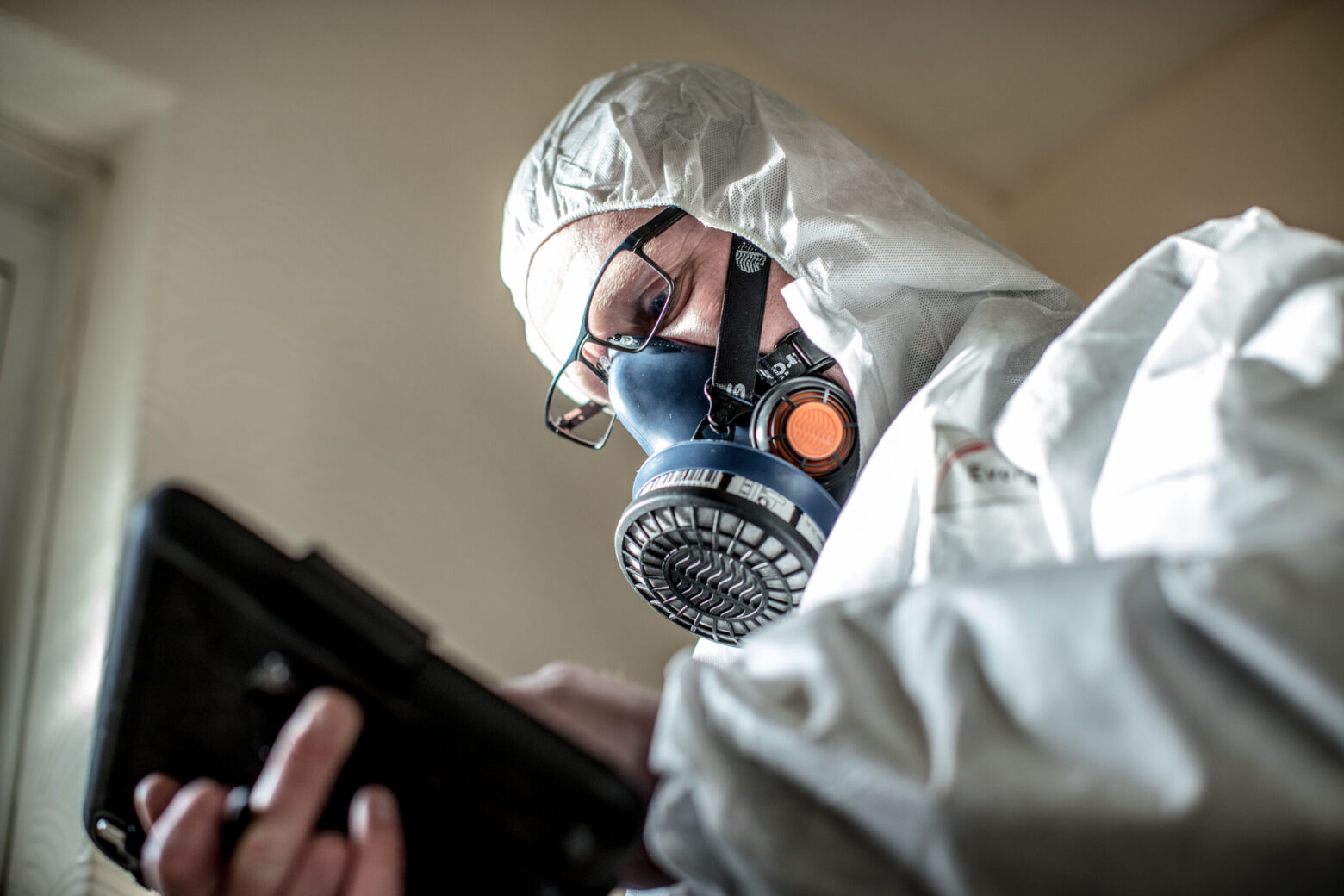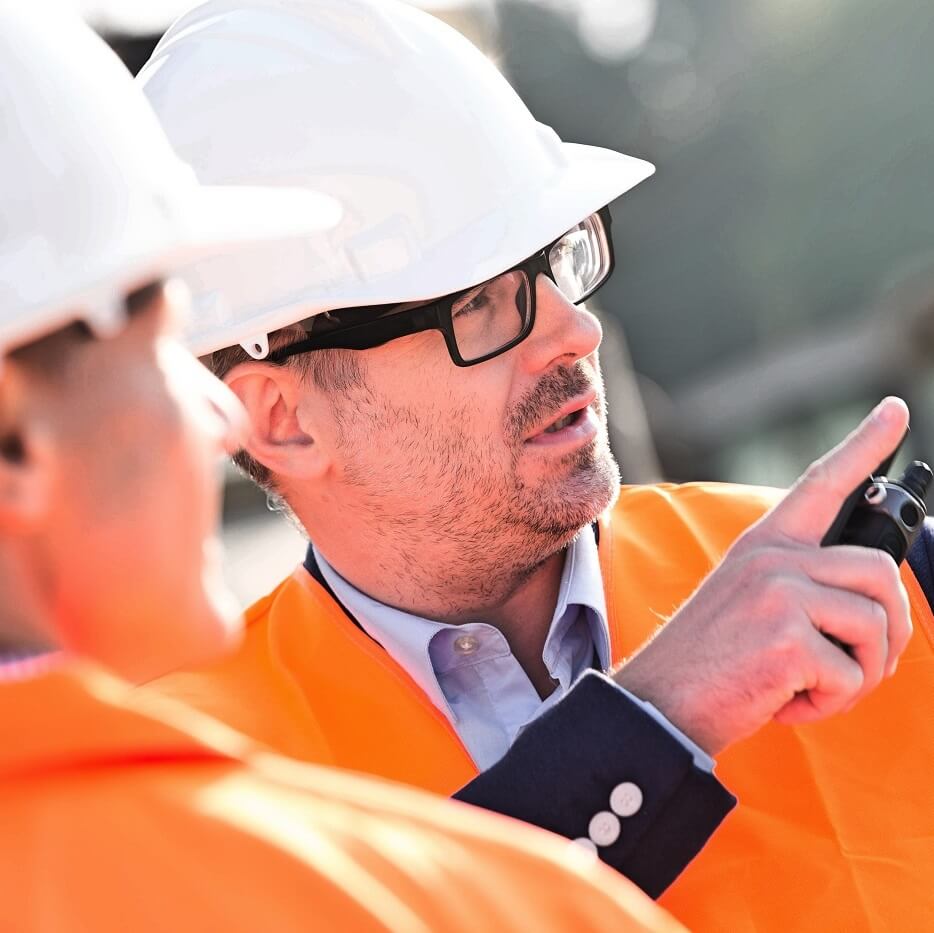At Franks Portlock, we have four laboratories situated in our various offices throughout the UK and we are often asked ‘when is asbestos testing required?’
Here, we speak to Nicola Warburton who is our Quality & Environmental Manager and is responsible for managing all our labs to ensure continuity, efficiency and best practice.
In your role, what’s required for asbestos testing?
In my role as Quality & Environmental Manager at Franks Portlock, I am responsible for managing our four labs to ensure that they operate efficiently and provide the best service to our clients.
I also maintain and develop our quality and environmental management systems. Since Franks Portlock was founded, we’ve always put external accreditation at the heart of our operations as we believe that having external bodies validate what we do provides additional confidence to our customers and staff.
Therefore, in my day-to-day role a large part of my time is spent working with external bodies such as UKAS to maintain and develop our accreditations to ISO/IEC 17020, ISO/IEC 17025 & ISO 45001 to ensure we are in line with what’s required for asbestos testing.
How long have you been in your asbestos testing role?
I joined Franks Portlock in 2008 at which time I was our second Lab Analyst and since then I’ve progressed through the business to my current role of Quality & Environmental Manager.
So, you must have seen quite a few changes in testing and analysis in this time?
Yes! We’ve grown from one initial lab which was based in Jarrow and had only two Lab Analysts to now having four independent labs throughout the UK (in Sunderland, the North West and Scotland.) We now employ nine full-time analysts, so things have really grown.
Last month alone we analysed approximately 1700 samples for 50 different clients.
Could you tell us about the types of testing and analysis that Franks Portlock performs?
We are able to identify asbestos in materials, air and even soil. To do so we use various testing methods including air sampling, stereomicroscopy, polarised light microscopy and dispersion staining, through these testing and analysis methods we can identify the presence, quantity and type of microscopic asbestos fibres.
This information can then be used to help our clients manage and reduce the risks from Asbestos Containing Materials.
We also conduct water absorption testing of samples. This allows us to determine the density of a material and whether it is a cement-based product. This information can be very useful when it comes to removing asbestos as it can be used to plan the works more effectively.
When is asbestos testing required?
Laboratory testing is the only way to identify if asbestos fibres are present, so we usually find that most asbestos surveys and inspections require some form of asbestos testing.
We perform analysis on all the samples that our surveyors generate, and we also accept samples from clients and the general public.
To find out if asbestos is present, do I need an asbestos survey?
No, you don’t always need an asbestos survey! In fact, a lot of our testing is asbestos sample testing, carried out on materials that people drop off into our labs without getting any other inspections done. For example, if they have found some fly-tipped waste or stored materials that need identifying.
We’ve analysed just about everything over the last 12 years from excavated soils, to hairdryers and even historical portraits!
It sounds like asbestos testing and analysis can be quite an involved process, does it take a long time?
Not always, no. With asbestos testing, as with a lot of health and safety issues, time is important, so we operate a ‘lean-flow’ asbestos lab test process. What this means is that we can offer premium 4-hour and 24-hour turnaround times in addition to our standard services. We even have a ‘while you wait’ facility where we can provide results in a matter of minutes when needed. These are all services that our clients identified as being important to them so we’ve put a lot of effort as a team into making sure we can deliver these to the highest calibre. It’s one of the things that I’m most proud of.
Find out more about our lab analysis services here or to discuss how we can help you, contact our team today.
 ASBESTOS REGULATION COMPLIANCE CHECKER
ASBESTOS REGULATION COMPLIANCE CHECKER 0191 419 3116
0191 419 3116 contactus@franksportlock.co.uk
contactus@franksportlock.co.uk








